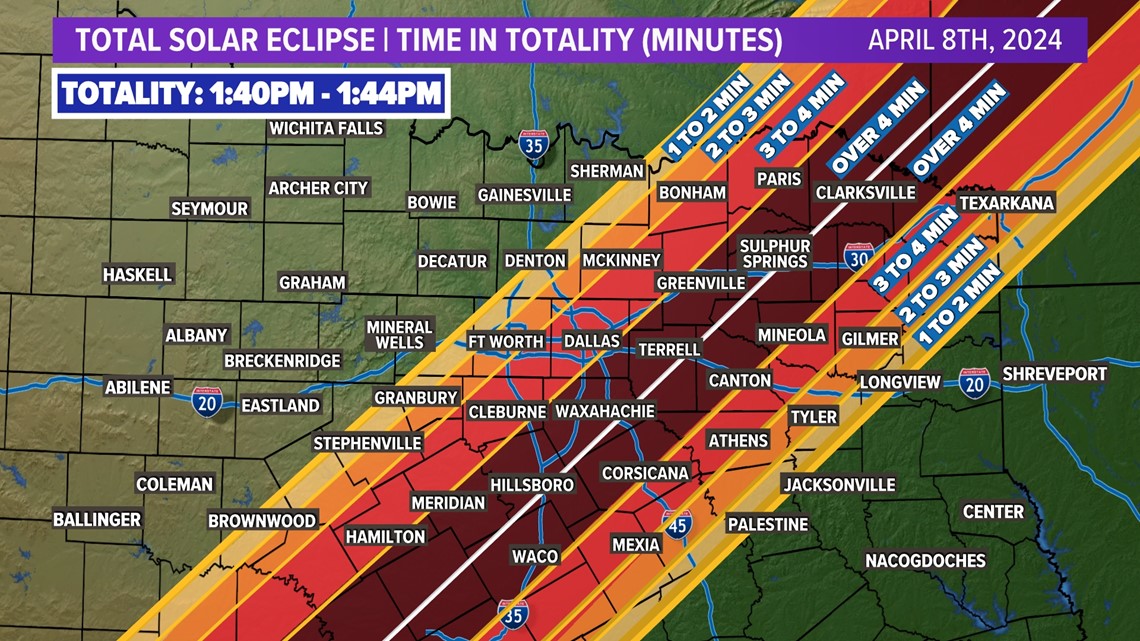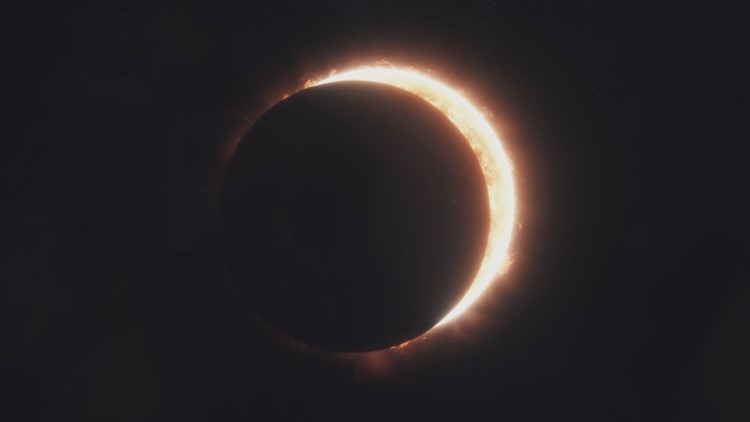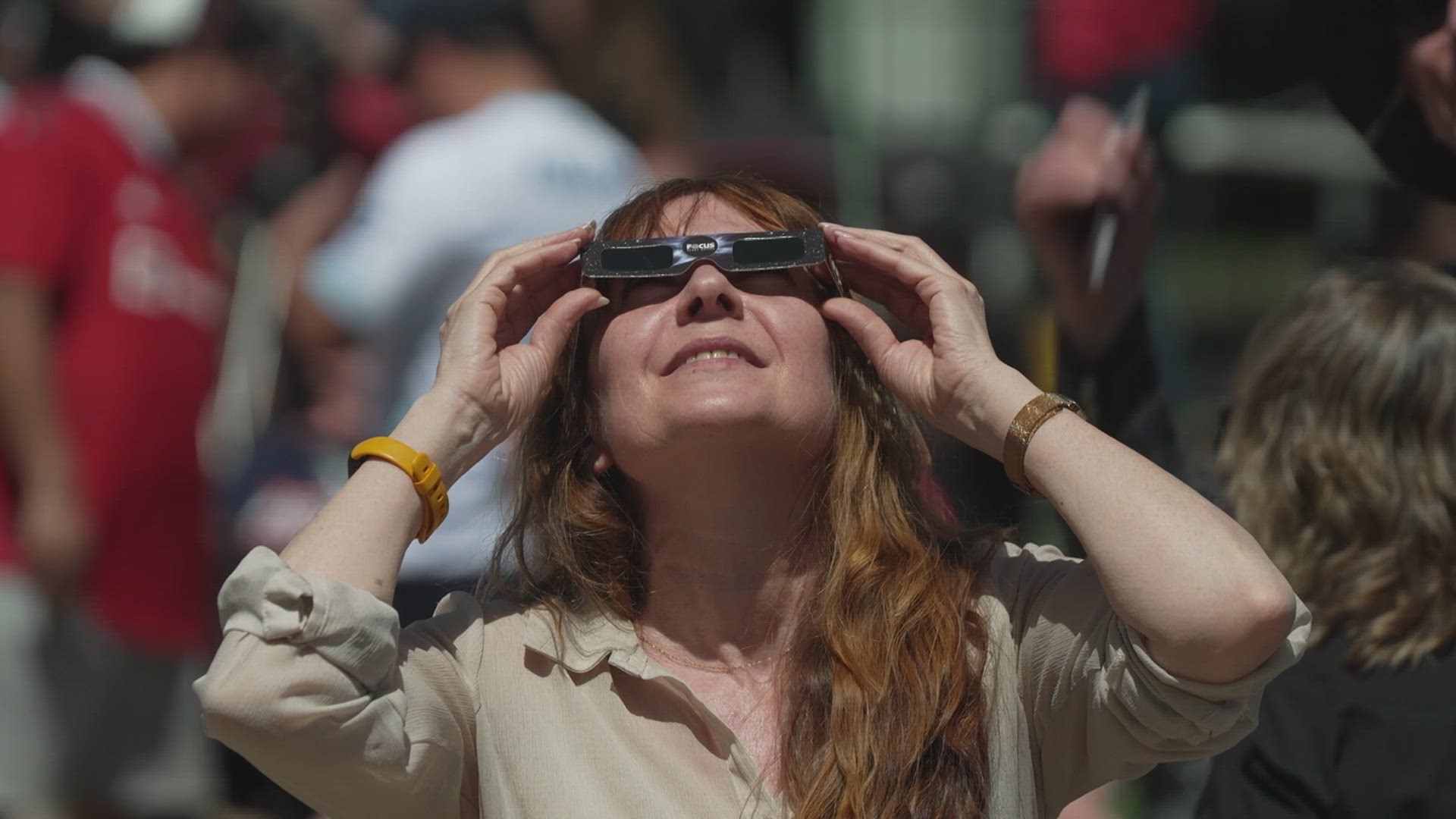DALLAS — After months of anticipation, the total solar eclipse will finally be here on Monday.
The historic event, which won't happen in North Texas for the next 300 years, includes more than 4 minutes of totality as the sun will be covered by the moon, darkening the skies across the region.
While the skies may be cloudy during the day of the eclipse, there will still be plenty to watch for during the event.
Here's when to expect it:
The partial eclipse will begin at 12:20 p.m. in Dallas. Then, from 1:40 p.m. to 1:44 p.m. the eclipse will reach totality. After completing totality, the partial eclipse will remain in Dallas until 3 p.m.
For the North Texas region as a whole, here are the totality times for each specific area:


Time in totality
The big winners in North Texas will be in southern Ellis County and Kaufman counties since the eclipse centerline goes right through.
Highest time spent in totality in North Texas (minutes : seconds)
- Ennis 4:24
- Kaufman 4:23
- Elmo 4:24
Here is a list of a few other locations with time in totality (minutes : seconds)
- Dallas 3:51
- DFW 3:04
- Fort Worth 2:24
- McKinney 3:04
- Arlington 3:20
- Waxahachie 4:18
- Corsicana 4:05
- Rockwall 4:04
- Roanoke 0:59
- Celina 1:42
- Canton 4:08
- Paris 3:59
Eclipse Coverage
Viewers at home can follow the eclipse along with WFAA the whole time, with digital coverage kicking off on WFAA.com, the WFAA YouTube channel and the WFAA+ streaming app at 7 a.m., and that digital coverage will extend until 4 p.m. Watch here:



